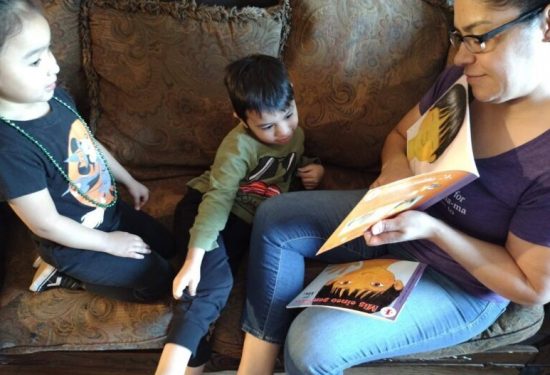Home Grown is thrilled to introduce the second cohort of provider leaders in our Leading from Home initiative. Leading from Home seeks to invest in and strengthen providers and families to inform policy decisions and actions. Home Grown created Leading from Home with the belief that it is critical to engage providers and parents in policy change and to support the leadership of providers and their ability to influence policy and systems. We seek to build and support community leaders and their goals to influence policy and systems.
We received more than 240 applications from providers and caregivers. While we could select only a small fraction of this for our current cohort, we want to acknowledge the incredible work happening across the country. Providers are delivering quality care for children and families, building community among their peers, and working for change. We see you and we applaud you.
After a thorough selection process, we are excited to introduce the 12 provider leaders in our 2022 Leading from Home cohort:
- Adesha Armstrong, Missouri
- Brenda Campbell, North Carolina
- Carmela Enriquez, Colorado
- Margarita Herrera, California
- BriAnne Moline, Montana
- Leticia Moreno, Colorado
- Susan Randolph, Arizona
- Gisela Sance, Texas
- Catrice Sida, California
- Jenny Silver, Oregon
- Brigette Willis, Georgia
- Deborah Young, Colorado
This year’s cohort includes an equal number of licensed Family Child Care providers and license-exempt Family, Friend, and Neighbor caregivers. The list represents:
– 6 licensed family child care (FCC) providers
– 6 family, friend, and neighbor (FFN) caregivers
– 9 states
– A diversity of experiences, languages, and identities
– From 4 to 30+ years of experience in the field
– 2 languages (Spanish and English)
– 9 of the 12 are providers of color
All of the selected provider leaders share a common goal of creating positive and equitable changes through advocacy for home-based childcare providers. With equity being the primary focus, these leaders are committed to changing systems so they accurately represent and serve the needs of all home-based child care providers, licensed as well as FFN. All of the selected leaders are dedicated to advocating for more inclusivity in policies. These leaders are committed to service for not only the children and families in their care, but for all home-based childcare providers in their community.
Over the next year Home Grown will use the Leading from Home model to support leaders in meeting their goals. Central to this model is our Community of Practice in which leaders build relationships with like-minded peers and find strength in their unity. Home Grown will offer a range of additional supports, including financial resources, ongoing coaching from experienced mentors, monthly action planning with Home Grown staff, and access to experts, including the National Women’s Law Center.
The Home Grown team is honored to support these leaders in their work to create systems change for providers and caregivers all over the country. Please join us in congratulating our 2022 provider leaders for their accomplishments and cheering the work that is to come.




